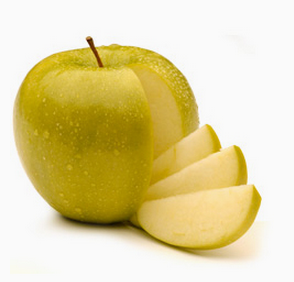 Bioengineered potatoes that bruise less, and apples that don t brown as quickly, took a major step toward US grocery store shelves this month. On March 20, the Food and Drug Administration (FDA) declared six GE potatoes and three GE apples as safe and nutritious as their conventional counterparts. The FDA decision is significant for ag biotech because, unlike most GE crops, these potatoes and apples have traits designed to provide benefits to not only farmers, but also consumers.
Bioengineered potatoes that bruise less, and apples that don t brown as quickly, took a major step toward US grocery store shelves this month. On March 20, the Food and Drug Administration (FDA) declared six GE potatoes and three GE apples as safe and nutritious as their conventional counterparts. The FDA decision is significant for ag biotech because, unlike most GE crops, these potatoes and apples have traits designed to provide benefits to not only farmers, but also consumers.
Bred by Idaho-based potato grower J.R. Simplot, the GE varieties of the popular Ranger Russet, Russet Burbank, and Atlantic varieties are engineered with two new traits. One trait will reduce the formation of black spot bruises by lowering the levels of certain enzymes. Simplot claims the potatoes will result in 40 percent less bruising during harvest than conventional varieties, which the company believes could significantly reduce the more than three billion pounds discarded by consumers yearly. The potatoes are also engineered to reduce the production of acrylamide, a chemical that can form during high-temperature cooking, such as frying. While the FDA s announcement noted that acrylamide has been found to be carcinogenic in rodents, the National Cancer Institute says scientists do not know with any certainty whether the substance can be harmful in food.
The FDA also approved three varieties of Granny Smith and Golden Delicious apples bred by Okanagan Specialty Fruits of Summerland, BC. This comes one month after another US government agency, the USDA, approved the release of the two apple varieties, known as Arctic Apples, that are genetically engineered to resist browning.
Both Okanagan s Arctic apples and Simplot s Innate potatoes were engineered using gene editing, or RNAi, to silence genes. Both companies hope that use of these techniques will assuage consumer fears of foreign DNA in their food.
Greg Jaffe, biotechnology director for the Center for Science in the Public Interest (CSPI) welcomed the FDA announcement, noting in a statement that there is no reason why these products pose any food safety or environmental risks.
For a more detailed look at the gene-editing process that Simplot used to engineer the Innate Potato, read Biofortified s interview with Haven Baker, Simplot s Director of Potato Development.
